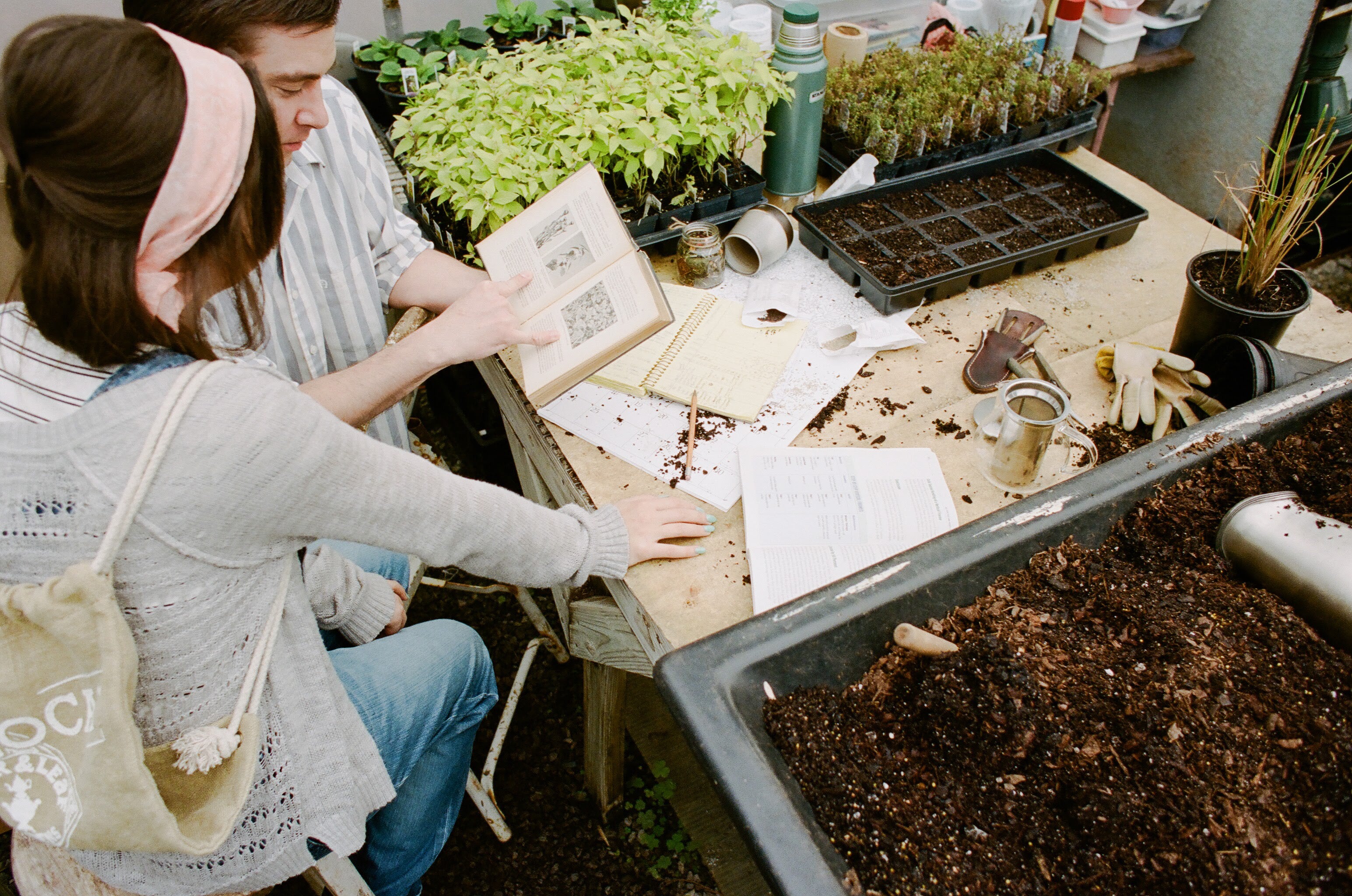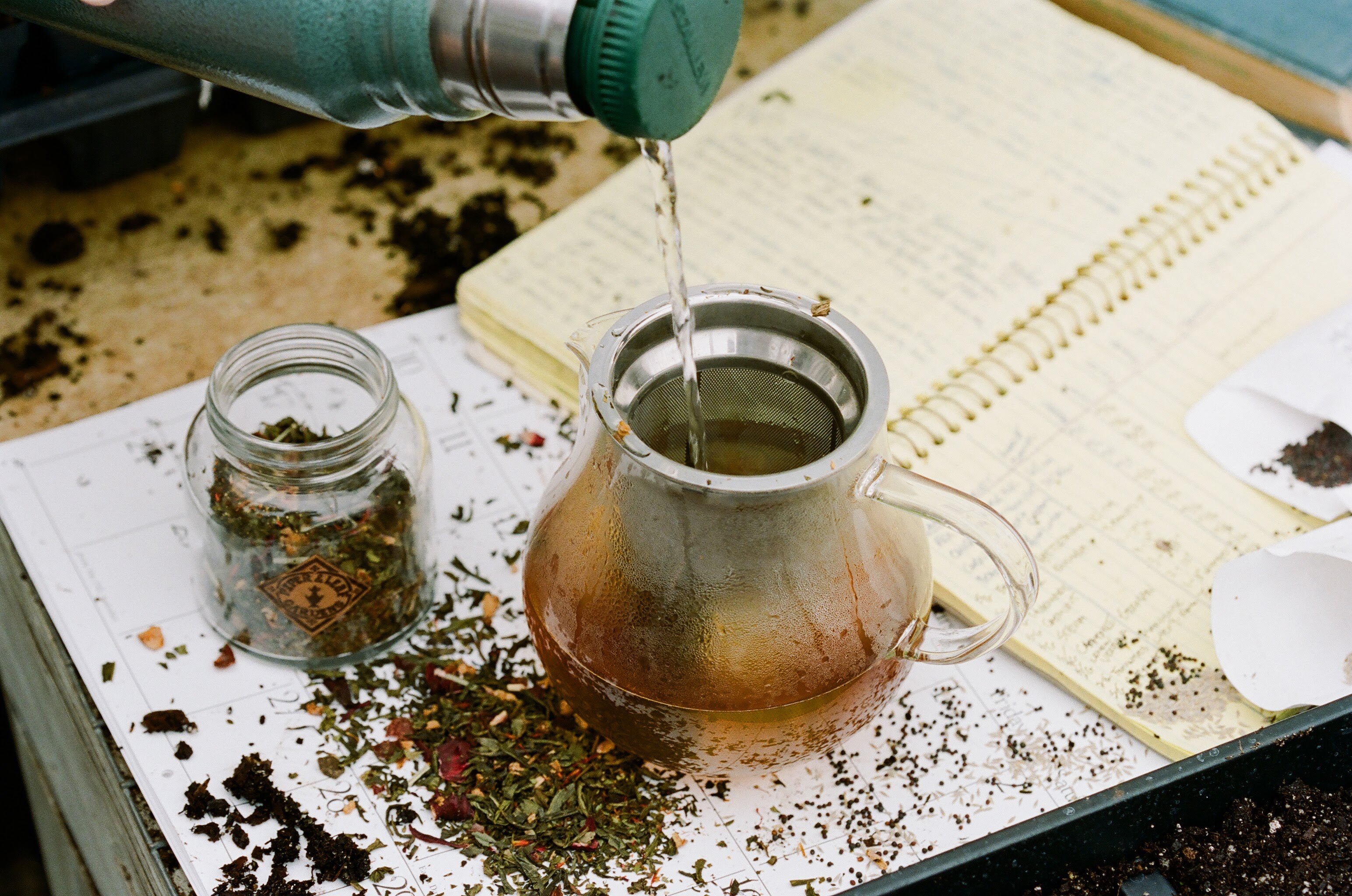
To Decaf or Not to Decaf?
Share
We have all used the terms decaf and caffeine-free interchangeably when referring to tea with no caffeine. While these two terms may seem the same, they are different from each other!
The term "decaf" entails that caffeinated tea leaves, or coffee, have gone through the decaffeination process. It's coffee or tea that has had at least 97% of its caffeine removed.
Caffeine-free is a term for tea and coffee that is sheerly free of all caffeine.

How is Tea Decaffeinated?
There are numerous different ways to decaffeinate tea and coffee.
The first and most common is a process using Ethyl Acetate. This organic compound is a sweet-smelling, colorless liquid and is used in glues, nail polish removers, and yes, decaffeinating your tea and coffee.
Another organic compound used to decaffeinate tea and coffee is Methylene Chloride. Methylene chloride is used in various industrial processes, in many different industries including paint stripping, pharmaceutical manufacturing, paint remover manufacturing, and metal cleaning and degreasing.
You can also use CO2 to decaffeinate your tea leaves! To begin the CO2 decaffeination process, the tea leaves are moistened with water and placed under pressure. Then streams of pressurized and heated CO2 are passed through the tea leaves, where it bonds with the caffeine molecules while leaving the tea leaves otherwise intact.
Once, it was believed that you could steep your tea leaves in hot water for 30 seconds to 1 minute and then strain it to extract the caffeine from it however, this has recently been debunked.

Authors of the research Monique Hicks, Peggy Hsieh, and Leonard Bell used the High-Performance Liquid Chromatography (HPLC) method to study the precise time-related extraction of caffeine from tea leaf. They used six different teas, including black, green, and oolong, three in teabags, and three in loose-leaf form. The results were published in a peer-reviewed paper, "Tea preparation and its influence on methylxanthine concentration," tea caffeine being one of the prominent methylxanthines.
The results that appeared from the study were as follows:
30 seconds: 9% caffeine removal
1 minute: 18% caffeine removal
2 minutes: 34% caffeine removal
3 minutes: 48% caffeine removal
4 minutes: 60% caffeine removal
5 minutes: 69% caffeine removal
10 minutes: 92% caffeine removal
15 minutes: 100% caffeine removal
So while the idea of rinsing your tea leaves with hot water sounds great, to extract all of the caffeine, you would have to steep the tea for 15 minutes, thus ridding the tea of caffeine, flavor, and health benefits.This would leave your tea leaves to essentially be a cup of hot water.
Why is This Important?
Harsh chemicals used in decaffeinating tea like Ethyl Acetate and Methylene Chloride are used in paint products and cleaners. At the same time, the idea of drinking decaffeinated tea sounds great, but compounds such as these are not. These methods strip tea of its natural vitamins and nutrients, damage the taste of the tea, and add to the fact that you are ingesting strong, harsh chemicals!
Whether it damages the overall taste, like hot water rinsing, or affects your health and the overall quality of your tea, the only method of decaffeination that does not damage the quality or your health is using CO2, which still affects the taste of the tea and is not commonly used.
While in our hearts, we would love a decaffeinated option for some of our beloved caffeinated blends, there is no way to do so without damaging the quality and taste of our tea. But fret not! While we do not have any decaffeinated tea options, our selection abounds with delicious fruity tisanes and soothing herbal infusions.
Where decaffeinated tea blends prove to do more harm than good for the body, all of our tea blends, especially our caffeine free herbal infusions and fruity tisanes, are crafted to not only taste good, but to be a delight to both body and mind. Read more about the benefits of drinking herbal tea.
Discover our all our wonderful caffeine free blends! Enjoy a cup or share one with a loved one.

Our Commitment to You
If you think about it, we drink tea for a few reasons.
1. Health benefits. Whether it is the tea itself or an ingredient in the tea, we all looked for a remedy to a specific problem in a cup of tea.
2. Taste. Whether the tea is chock full of health benefits or not, savoring a delicious cup of tea is unrivaled.
3. Community. Tea is more than a drink; it brings people together in fellowship and resounds with the hallmark of community.

At Piper and Leaf, each tea blend is hand-crafted with your benefit in mind. We not only strive to push the boundaries of tea innovation but each of our tea blends is based on an ingredient with a specific health benefit to not only improve your health with each cup but to foster community, sip by sip.



